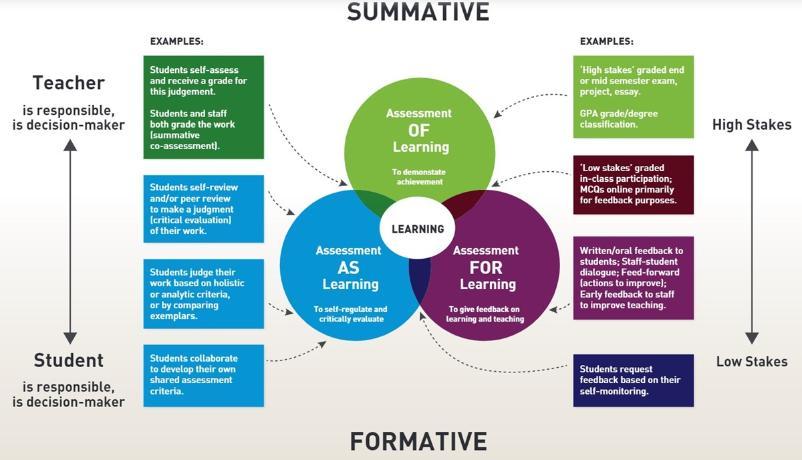Giving Effective Feedback
Practical Tip
A list of practical ideas for improving the efficiency and effectiveness of feedback to students can be accessed in Formative Assessment: Practical Ideas for Improving the Efficiency and Effective
Giving students feedback on their learning, often described as formative assessment, has been shown to have powerful positive benefits for student learning and achievement (Juwah et al., 2009; Black & William, 1998). The importance of feedback mechanisms in assessment has been well established in research (Fisher & Miller, 2008).
However, this can often be a time-consuming task in an environment with stretched resources. In addition, many staff report lack of student engagement with this feedback; for example, students may not read it, while also reporting a lack of helpful feedback. This can result in wasted staff efforts and ineffective feedback for students.
One of the key themes emerging to address this dilemma is to develop students own self-monitoring skills in order to help them narrow the gap between their performance and the standards expected of them (Clarke et al., 2001).
The timing, type and specification of feedback can also improve student ability to self-monitor. In addition, good feedback should feed into some specific actions that can be used in the next assessment. Feedback need not always be from the academic staff, as students themselves are a good resource to each other when given guidance on how to provide feedback. New technologies also open up some efficient feedback opportunities.
Finally, feedback that provides constructive comments on strengths, weaknesses, and suggestions for improvements has powerful positive benefits for student learning and achievement (Nichol & McFarlane-Dick, 2009; Black & William, 1998).
See below for Expanding our Understanding of Assessment and Feedback in Irish Higher Education, a useful resource from the National Forum for the Enhancement of Teaching and Learning in Higher Education.

Video - Giving Effective Feedback
Watch our short presentation of tips and techniques for giving effective feedback from our Teaching Toolkit Thursday series of webinars:
References
- Juwah, C., Macfarlane-Dick, B., Matthew, D., Nicol, D., and Smith, B., 2009. Enhancing Student Learning Through Effective Formative Feedback. York. The Higher Education Academy (Generic Centre)
- Black, P., and Wiliam, D., 1998. Assessment and classroom learning. Assessment in Education: principles, policy & practice, 5(1), 7-74.
- Fisher, R., and Miller, D., 2008. Responding to student expectations: A partnership approach to course evaluation. Assessment & Evaluation in Higher Education, 33(2), 191-202.
- Clarke, S., TIMPERLEY, H., and Hattie, J., 2001. Unlocking formative assessment (p. p34). London: Hodder and Stoughton.
Video - Giving Effective Feedback
Watch our short presentation of tips and techniques for giving effective feedback from our Teaching Toolkit Thursday series of webinars. NB: Please ensure you have cookies enabled on your browser to view the video. If you cannot see the video, go to your cookie preferences and allow targeting cookies. You can also watch this video on our YouTube channel.